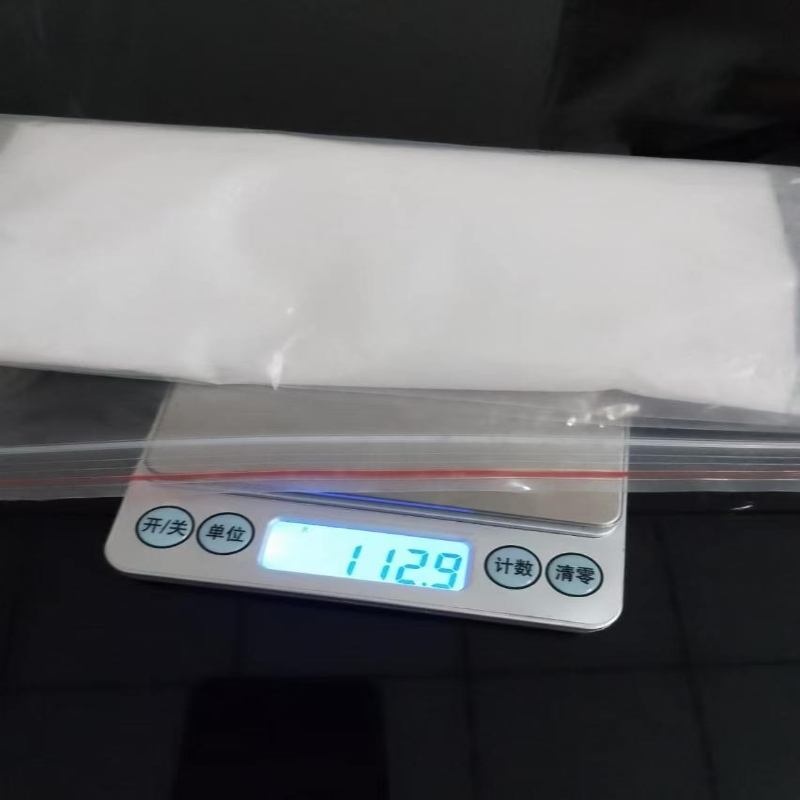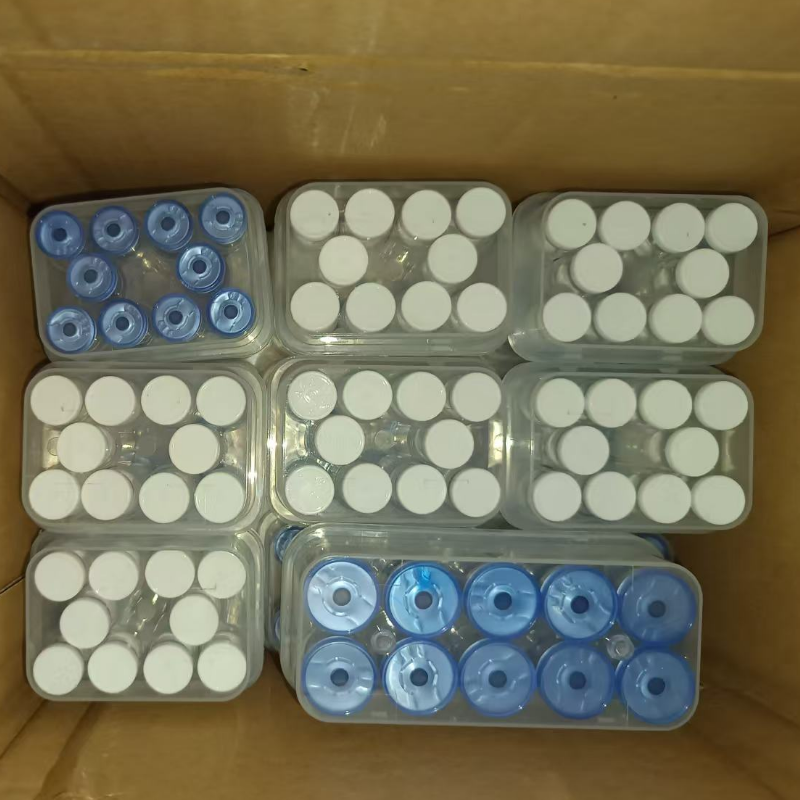-
Categories
-
Pharmaceutical Intermediates
-
Active Pharmaceutical Ingredients
-
Food Additives
- Industrial Coatings
- Agrochemicals
- Dyes and Pigments
- Surfactant
- Flavors and Fragrances
- Chemical Reagents
- Catalyst and Auxiliary
- Natural Products
- Inorganic Chemistry
-
Organic Chemistry
-
Biochemical Engineering
- Analytical Chemistry
-
Cosmetic Ingredient
- Water Treatment Chemical
-
Pharmaceutical Intermediates
Promotion
ECHEMI Mall
Wholesale
Weekly Price
Exhibition
News
-
Trade Service
.
During cancer treatment, conventional chemoradiotherapy causes PS to be irreversibly turned
out by scramblase Xkr8 during apoptosis.
Ectroped PS binds to receptors on immune cells, causing severe immunosuppression, resulting in less effective tumor treatment
.
Therefore, inhibition of Xkr8 can become a new way
to improve the tumor microenvironment for better therapeutic outcomes.
On November 24, 2022, Chen Heang, a doctoral student in Professor Li Song's research group at the University of Pittsburgh School of Pharmacy, and other researchers published an article in Nature Nanotechnology Targeting Xkr8 via nanoparticle-mediated in situ codelivery of siRNA and chemotherapy drugs for cancer immunochemotherapy
。 The authors found that Xkr8 in tumor cells was significantly highly expressed after platinum treatment, and then developed a novel nanocarrier
that can co-carry platinum drugs and Xkr8 siRNA.
The vector can efficiently target tumor cells and block PS ectropion
in vivo.
The authors found that after platinum treatment, the transcription and protein levels of Xkr8 in mouse tumors increased
significantly.
Due to the current lack of effective small molecule antagonists and monoclonal antibodies against Xkr8, they hope to inhibit upregulation and activation of Xkr8
in apoptotic tumor cells by delivering drugs and siRNAs simultaneously.
To this end, they developed a nanopolymer PMBOP, whose lipid chain helps platinum drugs (FuOXP) to load into hydrophobic nuclei more efficiently and promote the fusion
of the polymer with the cell membrane.
Its cationic biguanide group can form ionic interactions with siRNA, so that siRNA binds stably to the polymer surface
.
However, polymers with positive surface charges are not suitable for intravenous injection
.
Therefore, the authors used chondroitin sulfate (CS) with a large amount of negative electricity and polyethylene glycolated C (PEG-CS) to coat the polymer surface to form PMBOP-CP nanocarriers
.
It is worth noting that CS is an important natural ligand for CD44 (highly expressed in various tumor cells and tumor endothelial cells).
By adjusting the ratio of PMBOP, CS and PEG-CS, it is not only possible to neutralize the positive charge on the surface of the carrier, but also to precisely target tumor cells
.
Through a large number of in vitro and in vivo screening, the authors finally determined the optimal ratio of each component of the vector, and found that the carrier concentration in the mouse tumor was about 3 times
higher than that in the liver.
The vector not only has a targeted effect on more than 5 different types of subcutaneous tumor models, but also has a high accumulation
in situ tumors and lung metastases.
Next, the authors inhibited Xkr8 in tumor cells by siRNA in vitro, significantly reducing the expression of PS on their
surfaces.
In co-culture experiments with macrophages, they found that Xkr8, which inhibits tumor cells, can induce the differentiation of macrophages into the M1 population, and also has a significant blocking effect on the secretion of their immunosuppressive cytokines (such as IL-10).
Finally, the authors conducted anti-tumor studies
on mouse models of colon cancer and pancreatic cancer, respectively.
They found that the simultaneous delivery of platinum drugs and Xkr8 siRNA by vehicle could significantly slow down the growth rate of mouse tumors compared with single delivery, significantly improve the tumor microenvironment, and greatly increase the infiltration
of anti-tumor immune cells such as lymphocytes, functional T cells, and M1 macrophages.
In summary, the study found that platinum-based drugs significantly induced XKR8 expression
at the transcriptional and protein levels in tumor cells.
The authors then developed a PMBOP-CP-based nanocarrier
.
First, the vector is highly tumor-specific, maximizing tumor tissue uptake and reducing hepatic uptake
through active targeting mediated by CD44 on tumor and tumor endothelial cells.
Secondly, by delivering drugs and siRNA at the same time, the vector effectively slows down tumor growth while enhancing the anti-tumor immune response, so as to achieve the superposition effect
of one plus one greater than two.
In addition, it has been reported in the literature that completely knocking out Xkr8 in ordinary mice will not induce autoimmune diseases, and inhibition of Xkr8 in vivo will be a safe and reliable method
.
Therefore, the combination of platinum-based drugs with targeted Xkr8 technology indicates a new direction
in cancer immunotherapy.
Original link:
style="line-height: 1.
75em;margin-left: 8px;margin-right: 8px;margin-bottom: 0px;">Platemaker: Eleven
Reprint instructions
【Non-original article】The copyright of this article belongs to the author of the article, welcome to forward and share, reprinting is prohibited without the permission of the author, the author has all legal rights, violators will be investigated
.







